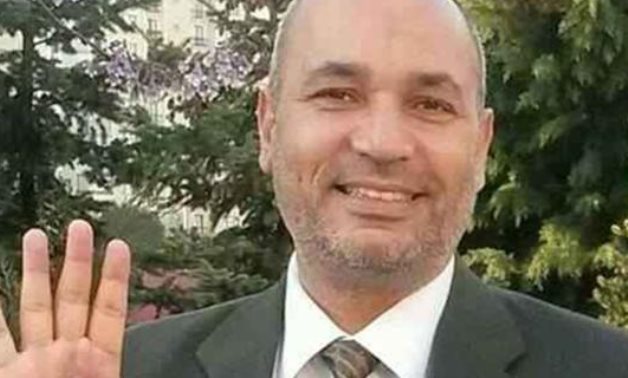
Muslim Brotherhood Judge Ayman al-Wardany
CAIRO - 13 October 2020: A Watergate-style break into the Attorney-General office and antiquity traficking during the Muslim Brotherhood rule surfaced on social media after a judge and an ex member of the fundamental group revealed details about these crimes online.
Emad Abu Hashem, who returned to Egypt from Turkey after defecting the group, wrote on his Faceook account the story of a Muslim Brotherhood judge who was promoted by late President Mohamed Morsi due to his loyalty, and also crimes.
That judge, whom Abu Hashem did not name, had a troubled family life as his parents were divorced due to his father's infidelity and grew up "hating the society." He found refuge in the Muslim Brotherhood to find a venue to express his hate and even get applauded for it, according to Abu Hashem.
Youm7 found out from trusted security sources that this judge is Ayman al-Wardany, who first moved to Turkey and then to Qatar where he now works, and is the main link between the Brotherhood and the Qatari officials as well as the Turkish consulate in Doha.
 Judge Emad al-Wardany
Judge Emad al-Wardany
During his career in the judiciary, he obeyed the orders of the group to allow them to perpetrate wide-scale criminal activities and was rewarded after the 25 January Revolution in 2011 by appointing his as an assistant to the justice minister and then a senior public attorney during the time of former Attorney-General Talaat Abdallah, who was appointed by Morsi. That judge was the link between the group and Abdallah.
While he worked in the prosecution, that judge took cases in the direction the Brotherhood wanted. But most importantly, he installed spy cameras in the office of the attorney-general, which continued to spy after Abdallah was removed from office per a court order and Hesham Barakat was appointed in his stead per a Supreme Egyptian Judicial Council decree in July 2013. Barakat was assassinated a couple of years later.
The judge took then Attorney-General Abdallah in a car with dark-tinted windows to the Ittihadiya Palace to meet with Morsi, who directly dictated the attorney-general what to do iat the public prosecution and how to direct cases in a way that accomplishes that political and even persoonal interests of the Brotherhood and its members. Abu Hashem said he knows this information from the judge himself.
It was known about this judge within the circle of his family and neighborhood that he was an antiquity trafficker, along with a relative judge of his who still works in the judiciary. They both enjoyed judicial immunity, so their luggage was not searched. His younger sister tried to report him to the police, but he told everyone she was mentally ill and even tried to lock her in a hospital for mental health.
Abu Hashem noted that the Muslim Brothehrood's own religious code, antiquity trafficking is legal and encouraged.
Abdallah and one of his deputies, judge Hassan Yassin, a long-running lawsuit for installing the spy cameras. However, Abdallah was given an early retirement and Yassin was acquitted.

Comments
Leave a Comment